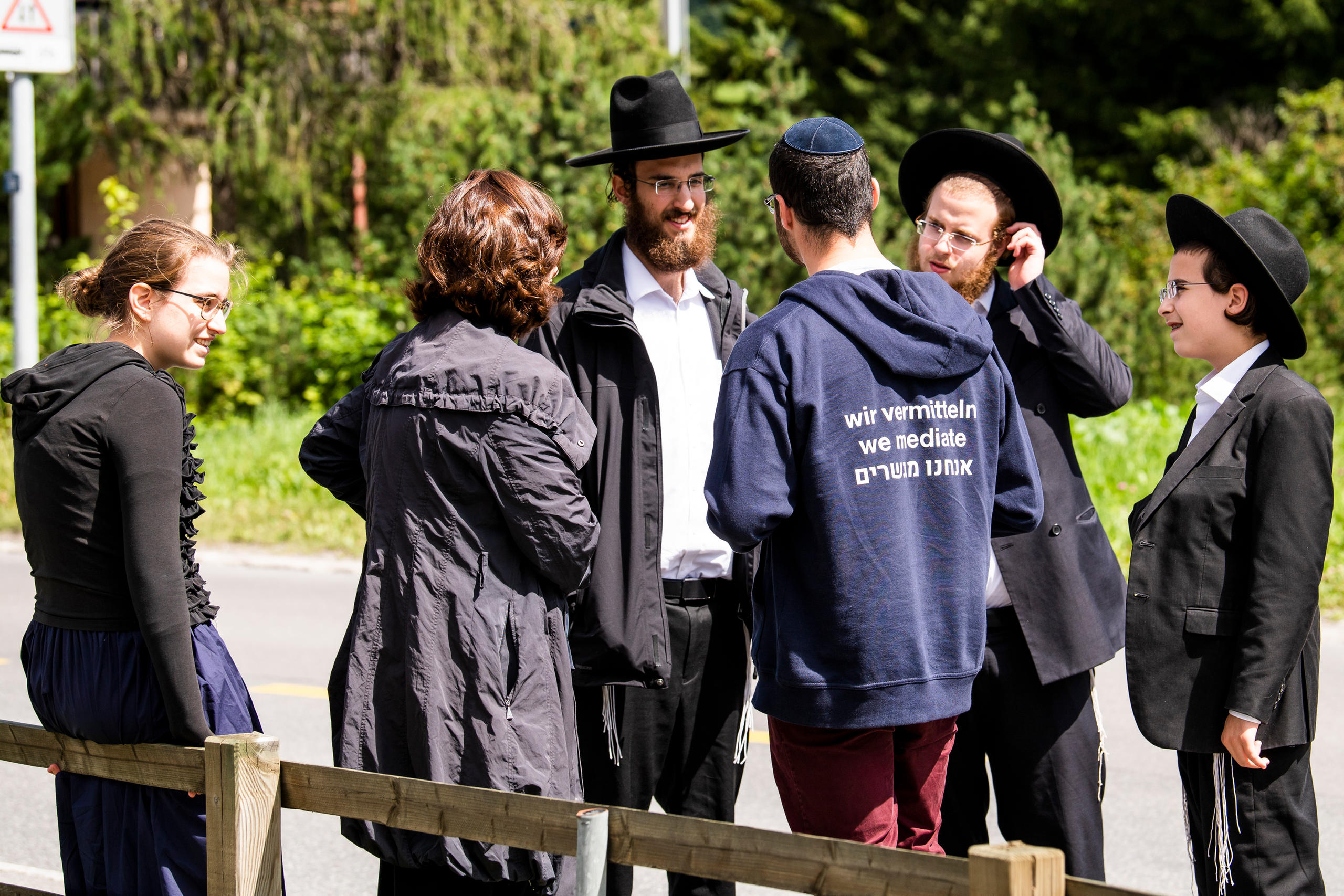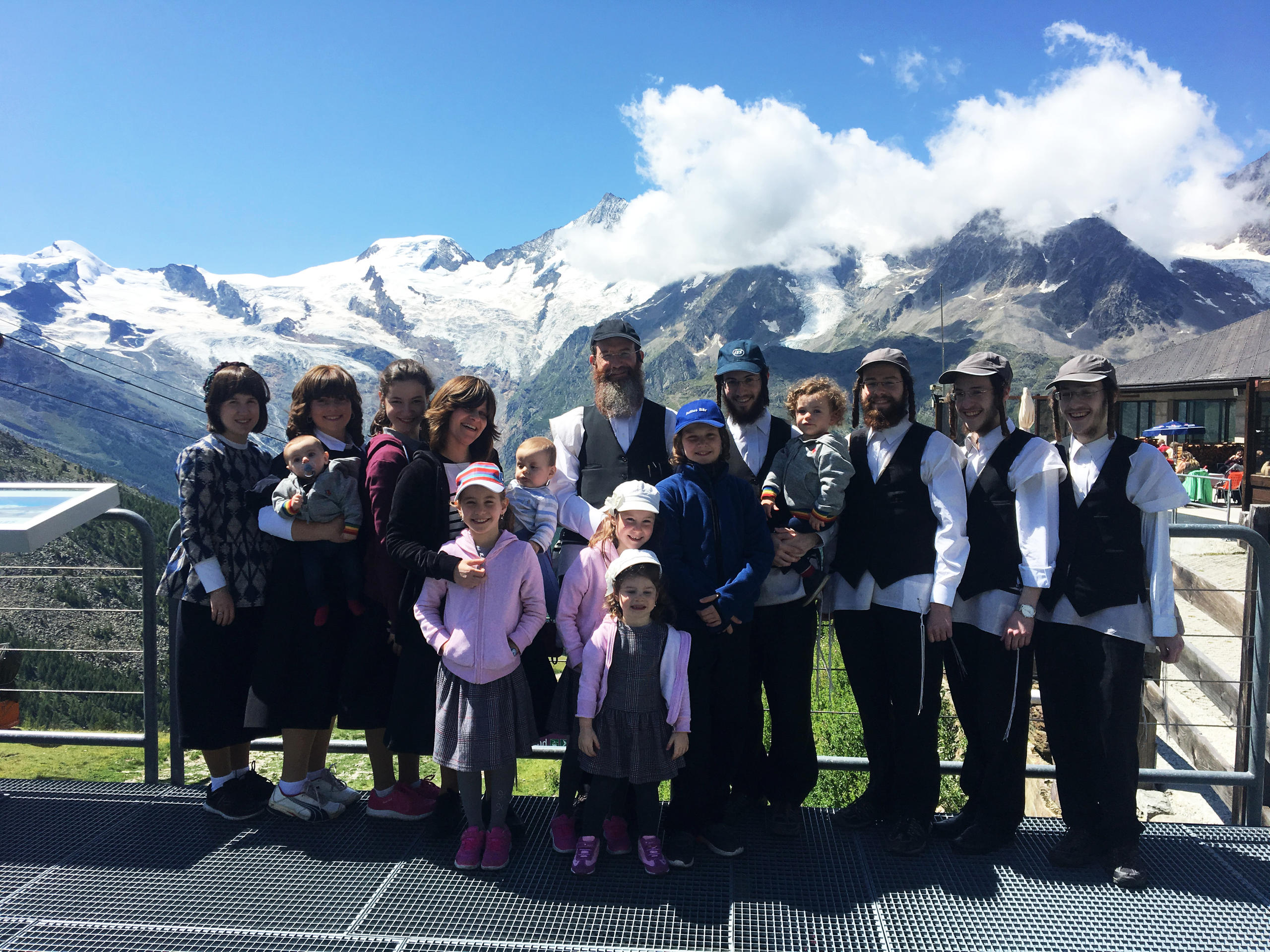
Swiss Jews explain Switzerland to Orthodox tourists

In order to avoid cultural misunderstandings, this summer Swiss Jews went to mountain resorts to mediate between locals and Orthodox visitors, giving insights into Swiss customs and social norms.
Two years ago an international storm broke out when a hotel in Arosa, eastern Switzerland, posted a sign telling Jewish guests to shower before swimming – sparking accusations of anti-Semitism and an official complaint from the Israeli foreign ministry.
+ Swiss tourist industry challenged by cultural differences
The Swiss Federation of Jewish CommunitiesExternal link reacted diplomatically, not only defending the member of hotel staff involved but also starting educational work in the form of seminars, workshops, information brochures and an etiquette manual for Jewish guests.
Young Swiss Jews have been involved in the Likrat PublicExternal link educational project for even longer, helping companies, hotels and other businesses understand their Jewish customers better.
Swiss customs
As part of Likrat Public, for the first time Swiss Jews were sent into the mountains to mediate between locals and Orthodox visitors from abroad this summer.
It’s not just a question of explaining Jewish religious laws to the locals; they also handed out a brochure, “Welcome to the Swiss Alps: Insights into Swiss CustomsExternal link”, published by the Federation of Jewish Communities for foreign visitors.

The brochure says it contains not only useful tips on kosher food and synagogues, but “may also be helpful to prevent frictions between Jewish tourists and the locals. Such frictions unfortunately have led to some very unpleasant reports about Jewish tourists in Switzerland”.
Tourists are told, for example, that in Switzerland, and particularly in rural areas, it’s normal to greet passers-by, even if you don’t know them. “You can say ‘Guten Tag’, ‘Grüezi’, ‘Bonjour’ or simply ‘Hello’,” the brochure explains.

Regarding the Swiss custom of shaking hands when meeting friends and colleagues, it says most people are not aware of the Orthodox Jewish concept of no physical contact with someone of the opposite sex. “If this is important for you, before appearing impolite you should explain that strictly observing men and women do not touch each other for religious reasons,” it advises.
Clean and quiet
It also points out that for hygiene reasons “it is not an accepted practice” to wear a T-shirt when swimming in public pools.
The authors add that in addition to cleanliness, “one of Switzerland’s advantages is quietness, especially at night. Locals and visitors alike keep their voice down in public areas (such as public transport), also when speaking on the mobile phone. For people used to loud city noises which require loud conversation, it may take some adjustment, but the quiet atmosphere adds to the Swiss charm and relaxation”.

Jewish guests are very important for the Swiss mountain regions. Orthodox Jews from all over the world have been coming on holiday to Switzerland for decades. The Likrat Public summer project will be repeated next year.
(Translated from German by Thomas Stephens)

In compliance with the JTI standards
More: SWI swissinfo.ch certified by the Journalism Trust Initiative















![The four-metre-long painting "Sonntag der Bergbauern" [Sunday of the Mountain Farmers, 1923-24/26] had to be removed by a crane from the German Chancellery in Berlin for the exhibition in Bern.](https://www.swissinfo.ch/content/wp-content/uploads/sites/13/2025/12/01_Pressebild_KirchnerxKirchner.jpg?ver=f05a5a9c)















You can find an overview of ongoing debates with our journalists here . Please join us!
If you want to start a conversation about a topic raised in this article or want to report factual errors, email us at english@swissinfo.ch.